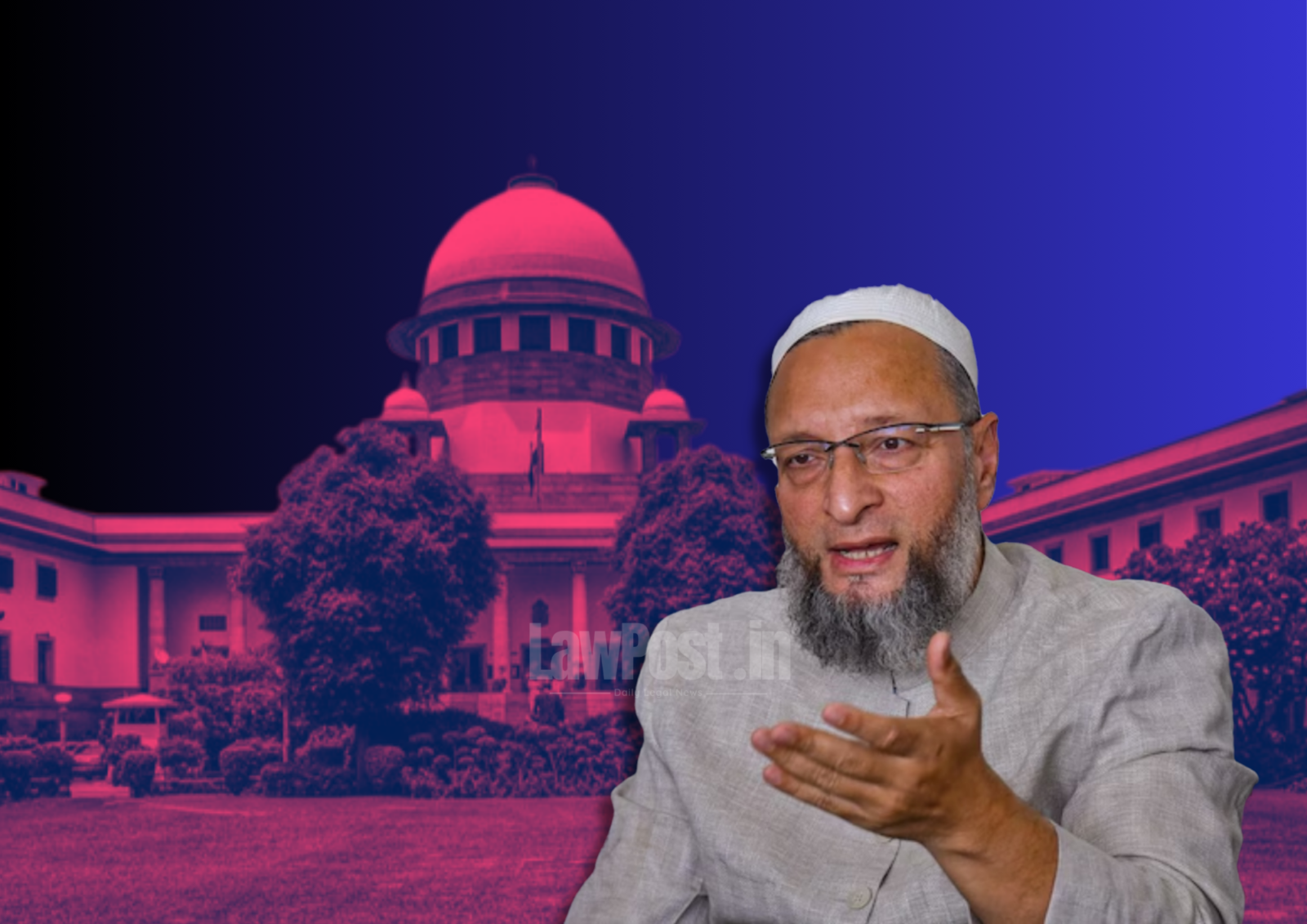All India Majlis-e-Ittehadul Muslimeen (AIMIM) president and Lok Sabha MP Asaduddin Owaisi has approached the Supreme Court challenging the constitutional validity of the Waqf Amendment Bill, which has been passed by both Houses of Parliament and is currently awaiting Presidential assent.
In his petition, filed through Advocate Lzafeer Ahmad, Owaisi has argued that the proposed amendments to the Waqf Act, 1995 infringe upon the fundamental rights of the Muslim community, particularly under Articles 14, 26, and 30 of the Constitution.
Quoting Article 26, which ensures the right of religious denominations to manage their own religious affairs, the petition states:
“The amendment is a direct attack on the autonomy of Muslim religious institutions and violates the basic structure of secularism and religious freedom enshrined in the Constitution.”
The plea further states that the new provisions strip waqf institutions of protections granted to other religious groups, such as Hindus, Jains, and Sikhs, and allow non-Muslims to be appointed to the Waqf Council and administrative boards, which manage waqf properties. Owaisi contends this is in stark violation of Article 14, the right to equality before the law.
During the Lok Sabha debate, Owaisi had stated:
“A Muslim will face restrictions on waqf property, and the encroacher will overnight become the owner. A non-Muslim will administer it, and this is a violation of Article 14.”
The Amendment Bill notably eliminates the concept of “waqf by user”, whereby a property could attain waqf status through prolonged religious use. It also mandates that only a practicing Muslim for at least five years, who owns the property, can create a waqf. These conditions, Owaisi argues, unfairly burden the Muslim community, especially in contrast with the rights of other religious denominations to manage their religious endowments.
The Bill also renames the Waqf Act to the Unified Waqf Management, Empowerment, Efficiency, and Development Act, signaling a centralisation of power. It removes the Waqf Board’s power to determine waqf status of properties, and grants the Centre rule-making powers, including auditing rights through the Comptroller and Auditor General (CAG).
Congress MP Mohammad Jawed has also filed a similar petition, claiming the Bill violates a range of constitutional guarantees, including Articles 14, 25, 26, 29, and 300A (right to property). His plea describes the Amendment as “discriminatory towards the Muslim community and an infringement on their right to practice and propagate their faith.”
While the government argues that the Bill aims to modernise and streamline the administration of waqf properties, critics say it erodes community control, religious freedom, and minority rights.
The Supreme Court is expected to hear the matter in the coming days, as the Bill remains pending Presidential assent.








